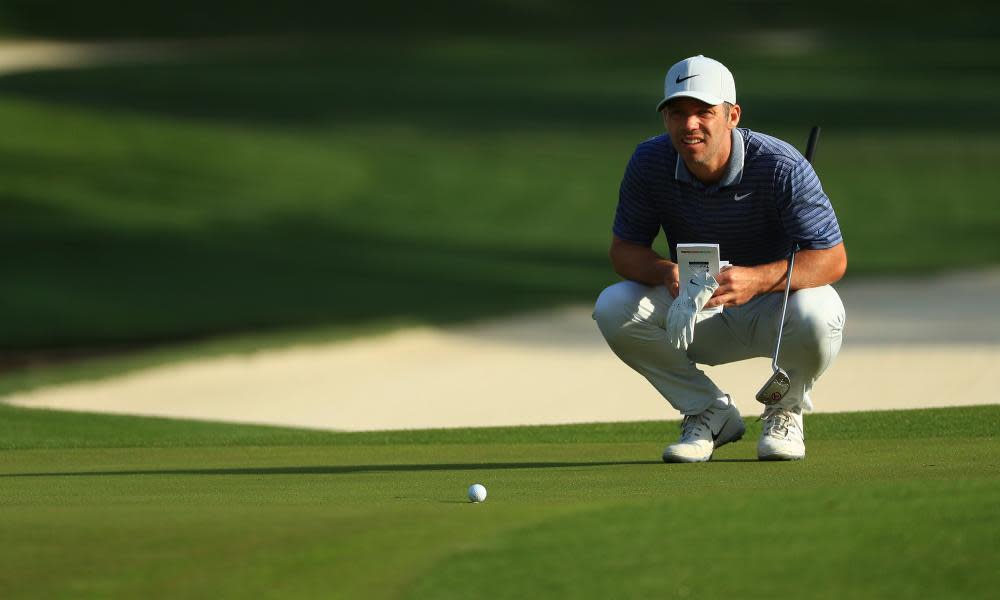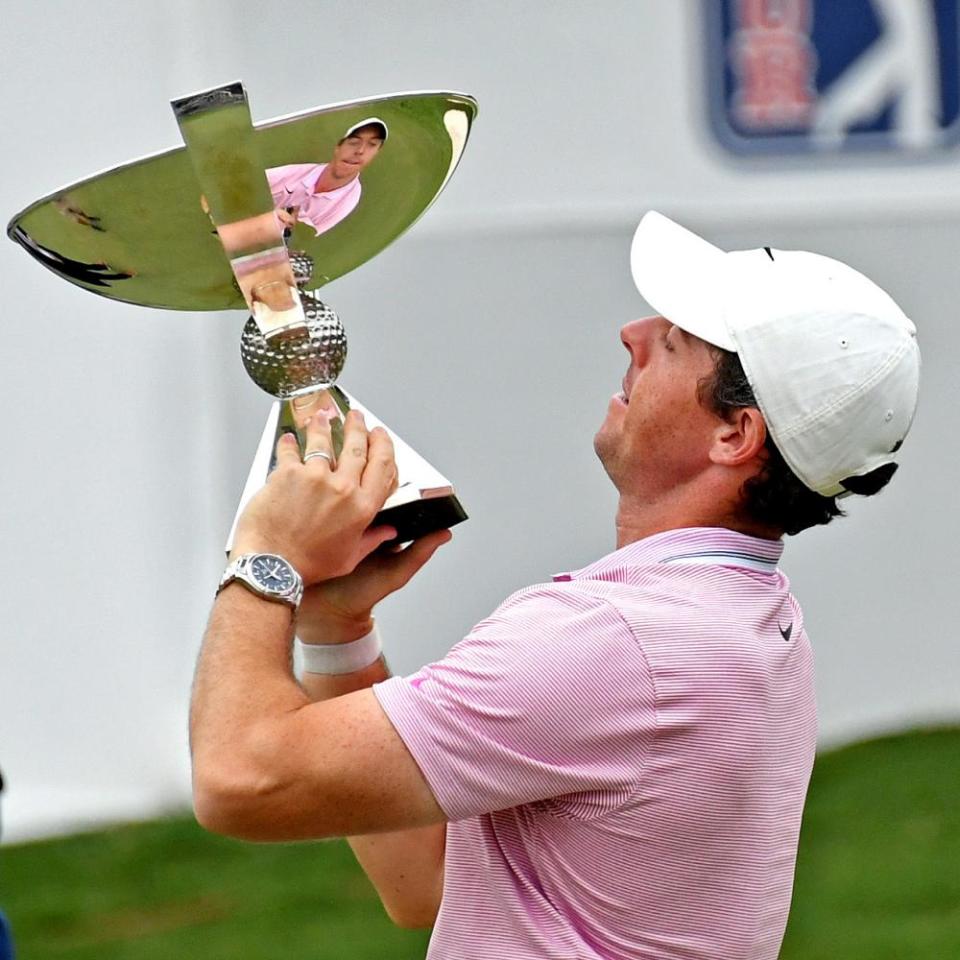Golf must be force for good when it makes long-awaited return

The release of a revised majors schedule arrived like a beacon of light. One isn’t scraping barrels of insensitivity to point out that thoughts of the return of sport, not just exclusively at its elite level, get many people smiling during these grim and uncertain times. Disappointment that there will be no Open Championship in 2020 was offset by the thought of a US PGA Championship in August, a September US Open, the Ryder Cup going ahead as scheduled and an utterly novel November Masters.
Related: Golf's hiatus offers reminder of what the Open was before money talked | Ewan Murray
There is understandable scepticism about the validity of these plans, such is the scale of the coronavirus. The US PGA’s window of early August in San Francisco appears a long shot. The PGA Tour seems willing to play tournaments behind closed doors – should adequate testing provision be in place – from June but indications are the European Tour won’t be back in competitive mode until at least August.
The Race to Dubai finale, scheduled for November, and key European events leading in will inevitably be pushed back when a revised schedule is announced. We should, though, be more concerned with the form golf takes when it reappears. Never before has the game had it within its power to either be a force for good or show itself up as self-serving to the point of nausea. And make no mistake, individual sportspeople are more self-obsessed than most.
Nothing can be as it was for a long time; it would be ludicrous to suggest otherwise. If golf is on its way back in tournament format, what can it contribute in return? The notion of multimillionaires simply returning and doing their bit for commercial partners is borderline offensive.

Golf has displayed a richer appetite than many other sports to get back to something even approaching normality, which is fine providing there is an inherent willingness to offer demonstrative benefit to public services and communities which have endured months of suffering. Asking Player X what his yardage was on the last par three. No thanks. Golf must be grateful – very grateful – if it is permitted leeway in 2020, and act accordingly.
Ordinarily, the PGA Tour’s season would conclude with the payment of a US$15m bonus from a $70m pot at the conclusion of the FedEx Cup. The figure is typically justified, not unreasonably, in context of non-performance related pay as bestowed on leading sportsmen in the United States. Cries for playing opportunity may well mean the PGA Tour enlarges the field sizes at the FedEx play-off events – therefore changing them by all recognition anyway - but the aggregate prize needs reconsideration.
After mass, global loss of life and an economic crash it would be beyond unwise to hand $15m to a golfer. You would hope someone at FedEx or the Tour has already deduced that much.
Most leading players either have charity foundations or give regularly to worthy causes. Paul Casey, for example, is a high-profile and firm supporter of Unicef. The PGA Tour itself is not shy in donating to a greater good. But if golf wants to restart, therefore relying to a large extent on the very groups who have been under pressure for so long, it has to create a fresh narrative. The game should be a net contributor to the world’s recovery from coronavirus, not a gleeful benefactor. Or, indeed, a virtue signaller.
Related: Ian Finnis, Tommy Fleetwood's caddie, raises £10,000 for colleagues
If the US PGA Championship, US Open and Masters make it to tee-off time, key workers should be first in line for free tickets. If the events are to be played minus large crowds – and that is entirely possible – the same people should still be the first in line for free tickets. Birdies and eagles should trigger automatic donations to the very services that were stretched to the point of breaking by coronavirus.
These are simple moves; it is incumbent on the sport as a whole to do much more. It is perhaps churlish to shrug off Augusta National’s $2m donation to local entities to help with the pandemic but context is necessary; the club reportedly paid three times that figure to acquire real estate early in 2020. Last year’s Masters prize fund stood at $11m. As the golf world obsesses about ‘when’ the collective thought process should change towards ‘how’.

 Yahoo News
Yahoo News 
